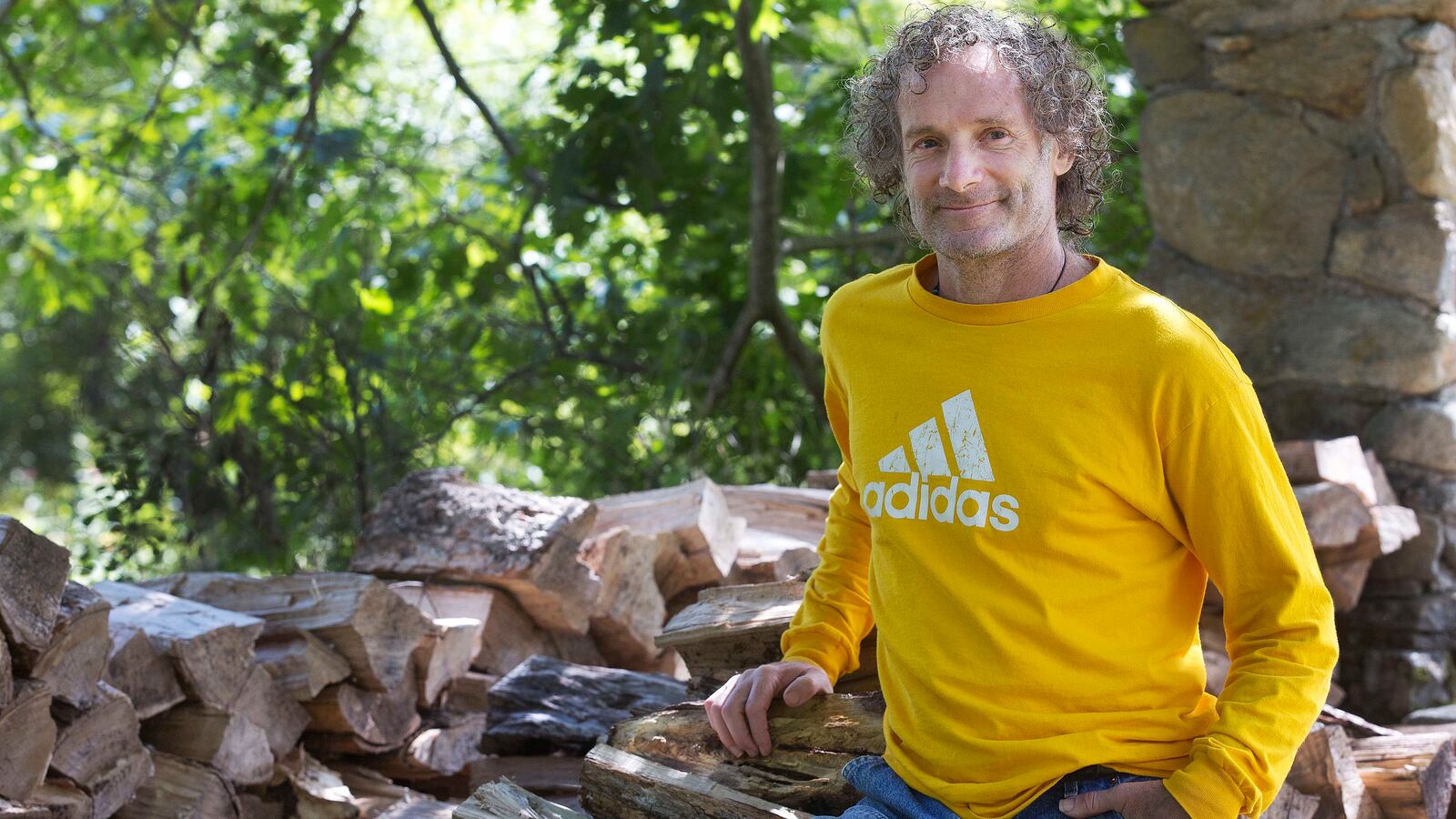After they locked his body into a truck tire. After they cuffed his hands behind his back, then flipped him over so his weight rested on his knees and forehead. After they poured water over him, then beat his feet and hands with steel cables. That’s when Theo Padnos confessed to helping the CIA kill Islamic terrorist Anwar al-Awlaki, to being gay, to helping the CIA get the goods on al Qaeda in Syria, and to his desire to rape Syrian women.
None of this was true.
“The ideal torturer in an Islamic state is someone who takes himself out of the act entirely,” says Padnos, whose new book, Blindfold: A Memoir of Capture, Torture and Enlightenment, tells of the nearly two years he was held as a prisoner by al Qaeda in Syria. “[The torturer] does his bit without emotion. The vast majority of them thought of torture as work they had to do to purify Syria of bad elements that had crept into the nation during the time of the Assads.”
Padnos, a writer who spoke Arabic, went to Syria in late 2012 with the aim of rambling along the Syrian-Turkish frontier and reporting about how the uprising against the Assad regime was affecting the average citizen. He had been to Syria in the past, had even studied at an Islamic religious school in Damascus. But the Syria he had known no longer existed, and in the book he is the first to admit that his under-estimation of the situation in 2012, and his lack of a press pass—he had no assignment—was what got him into trouble.
“I thought I knew Syria so well that I could get along with everybody,” says Padnos. “But obviously, the whole country was in the process of a radical psychological transformation. Something had happened in the countryside that had changed the whole complexion of the society.”
Padnos decided to sneak into Syria from Antakya, Turkey, with a group of men he thought were smugglers. But those companions kidnapped him, and eventually he was turned over to Jebhat al-Nusra, the Syrian al Qaeda franchise. Thrown into a cell in the basement of the Aleppo eye hospital, Padnos began an odyssey that saw him transferred to the basement of a villa, then a grocery store, a warehouse basement, a basement of Aleppo’s motor vehicles department, a janitor’s closet, a cell in a farmhouse, and towards the end of his captivity, a plush villa where he was given some small freedoms and was essentially under house arrest. Throughout all this he was tortured on a regular basis and referred to by his captors with such charming names as Pig, Donkey, Insect, and Filth.
“There’s a psychological sense of terror and despair” about situations like this, says Padnos. “You don’t know how long it will go on, and where it’s going. They can drag it out for months.” But, he adds in the book, “once you know the rules, life in our society, even in its worst places, in which, I’m pretty sure, I lived, was bearable.”
Padnos says his kidnappers told him they hated the West because of its arrogance, its preoccupation with sex, and its alleged submission to the Jews. Some wanted to establish an age-old Islamic dream, where Muslims would live in harmony with the land and themselves, invincible before Islam’s enemies, and at one with the Koran. Padnos admits that some of their grievances made sense, that “they feel oppressed in their own countries. A major grievance is that Islam as a religion is not the power it once was, it does not provide justice as it once did.”
In this respect, the longing for a purer, more just Islamic society mirrors in some ways the anger of the mob that stormed the U.S. Capitol on Jan. 6. “The major comparison is the radicalization of normal people,” says Padnos. “What happened in Syria is that huge swaths of the population became radicalized. Most of these MAGA guys, they believe they are on a spiritual quest to make America great. They have surrendered themselves to some authority they really don’t understand. Here it’s Donald Trump, over there it’s ISIS. It’s the crowd element that is frightening.”
During his time in captivity, Padnos became used to what he calls “welcoming parties”—the beatings he received when entering a new prison—and began to think of his constant attempts to rid himself of lice as a “leisure activity.” He came to realize that his guards were often bored, and to relieve their boredom, they abused him. He also had an extremely contentious relationship with one fellow cellmate, Matt Schrier, a photojournalist who converted to Islam while in prison.
“Matt hated me because I had refused to convert, because I felt I was more than willing to find the good in an al Qaeda suicide bomber than I was to spend a moment in conversation with him, and because I knew the secret of his bad faith. (Schrier has admitted his conversion to Islam improved relations with his kidnappers).”
Padnos was finally released in August 2014, thanks to a ransom paid by the Qatari government which, he says, “probably started the problem; they sent in a lot of weapons to Syria that wound up in the hands of the radicals. They had this idea of sponsoring a revolution in Syria [but] they armed the people who tortured me.” Padnos was forced to rely on Qatari largesse because the United States has a policy of not negotiating with terrorists, something the former prisoner gets angry about when the subject is brought up.
“I negotiated with terrorists every day,” he says. “I had no moral qualms about talking to anybody if it was about saving the life of an American citizen. The U.S. will talk to them, but they will not make any concessions to terrorists.”
You can understand why Padnos feels that way—any hostage probably feels the same—and still disagree with him. But there are more important, and more sobering, lessons that Padnos wants readers to take away from Blindfold: “I want readers to see that a strange psychological phenomenon has taken over vast swaths of the landscape. They called it a caliphate, I call it mass craziness. It’s The Handmaid’s Tale, a nightmare society where women are sex slaves and people are tortured in the public square.”
Still, Padnos made it back home to Vermont safely, and says that if nothing else, the experience made him understand “how fragile life is. I got a second chance to live, and I will not take such cavalier risks in my life again. I came through this happier than I was before, eager to live life.”







